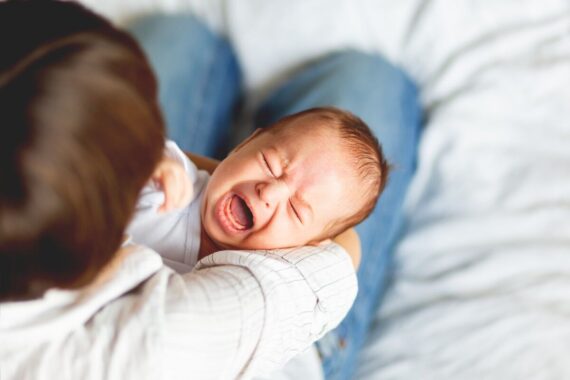NHS England has published guidance for GPs on doing a ‘more comprehensive’ postnatal health check to ‘address unwarranted variation’.
It will provide ‘clear national advice’ for GPs to fulfil their contractual obligation to offer a maternal check-up six to eight weeks after birth.
With MBRRACE data showing maternal deaths are much higher in the postnatal period than antenatally, and increasing numbers of women with complex pregnancies due to multimorbidity, the postnatal GP check is an ‘ideal opportunity’ to monitor and provide support, NHS England said.
All GPs should be trained and have up to date knowledge on doing postnatal checks which should be offered universally to all women including those whose baby has died or does not live with them for any reason, the guidance, developed in collaboration with a range of organisations including the RCGP, states.
As well as reviewing maternity discharge letters, GPs should also use the consultation to review any pre-existing conditions where management may have been paused or altered or conditions that arose in pregnancy such as gestational diabetes.
Mental health should be a priority in the consultation, ahead of recovery or other conditions and every woman should be asked about it every time she is seen, the guidance recommends.
Identifying and addressing severe mental illness such as severe depression and postpartum psychosis should take precedent over other areas that can be addressed at another time, it adds.
Anyone with a recent change in mental state or emergence of new symptoms, new thoughts of acts of violent self-harm or new and persistent expressions of incompetency as a mother or estrangement from the baby should be referred to the local crisis perinatal mental health service.
The consultation should also cover feeding, physical recovery including wound healing and perineal health and pelvic floor and contraception.
A flow chart is included in the guidance for managing a consultation including when to refer to other teams and the relevant SNOMED codes.
GPs should also work to reduce inequalities and improve access in certain groups including young mothers, Black Asian and mixed ethnicity women, those from Gypsy, Roma and Traveller communities, women living in deprived areas and bereaved mothers-
Dr Claire Fuller, NHS medical director for primary care said: ‘More than 600,000 women give birth every year in England, and so it is vital that they can get the right NHS mental health and physical support at what can be a hugely pressured moment in their lives.
‘GPs are perfectly placed to offer new mums a welfare checks 6-8 weeks after giving birth – for not only their physical health but also their mental wellbeing and this new NHS guidance published today ensures that family doctors have the resources to provide this comprehensive support.
NHS England said in the past year more than 53,000 new mothers received specialist perinatal mental health support with every local local system now having access to a specialist community perinatal mental health team.
Health and social care secretary Victoria Atkins said: ‘Mothers should be supported after giving birth. This includes being able to get the mental and physical health support needed for a healthy recovery – while giving new-borns the best start in life.
‘The postnatal check provides an important opportunity for GPs to listen to women in a discrete, supportive environment.’


















When I qualified as a GP , we provided a full maternity services to pregnant mums with integration of care alternating appointments with the midwife. Seeing the patient through pregnancy and postnatal period .. holistic care.. it seems that the devaluation of GPs for the sake of other professionals to practice in their own right has left the patient having to pay the price with risk to safety and continuity of care. The ARRS roles will repeat this short sighted view at significant financial cost but no one yet knows the cost to patient care in terms of safety.
As above used to do shared clinic with a midwife.
Seemed to recall the FP32 form specified up to 6 post-natal visits claimable. Even did baby check, post natal, contraceptive advice (1001 signed and claimed) & first vaccinations at 6/52
Getting too old for all of this reinvention, & no mention of continuity & reduced attendance numbers for the mother either?
Would seem to be an ideal job for say , plucking a profession randomly from the air, a midwife or health visitor. If only they had some sort of remit for this patient population otherwise gp’s will have to pick up the lack of service provision
Does it come with a suggested/guidance length of appointment time to undertake this work?
Or are we expected to fit it into the 15 minute slot.?
I am fine with this if workload is managed, but extra time demands just increase work stresses. It usualy takes me 20 minutes just to do a new mental health assessment, and I still get comments from the mental health team on the brevity and lack of detail in my referrals.
When are they going to start taking work off us
We are under resourced, and you cannot keep asking a shrinking workforce to ‘just do more’
There comes a points when you just have to say sorry, ‘no more’
Anything in the regs to say it cant be delegated to a PA?
Agree with Dr Bhandal. But also a wedge has been driven between Doctors and Midwives by some with power issues and little understanding of GP funding and supervision responsibilities, and cuts in what responsibility midwives will take – many forced by health boards or RCN advice which is made up without consideration of other professionals.
Dr Friel has a long memory if he can remember Health Visitors being involved with babies, children, and mothers, but they were originally intended to be involved with the elderly as well !